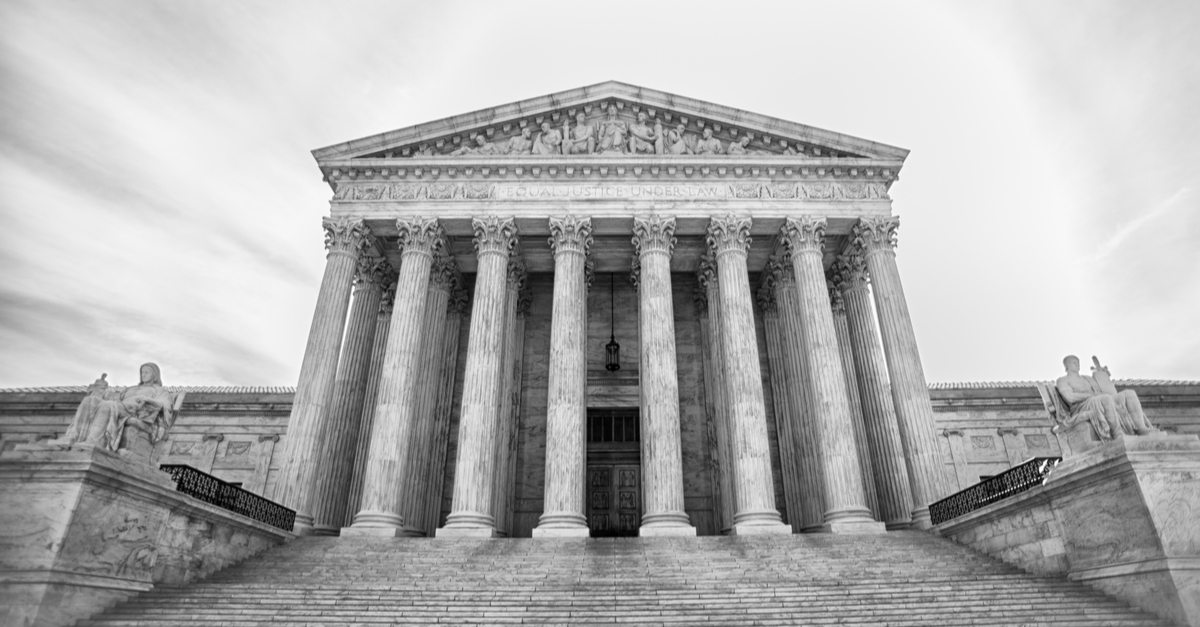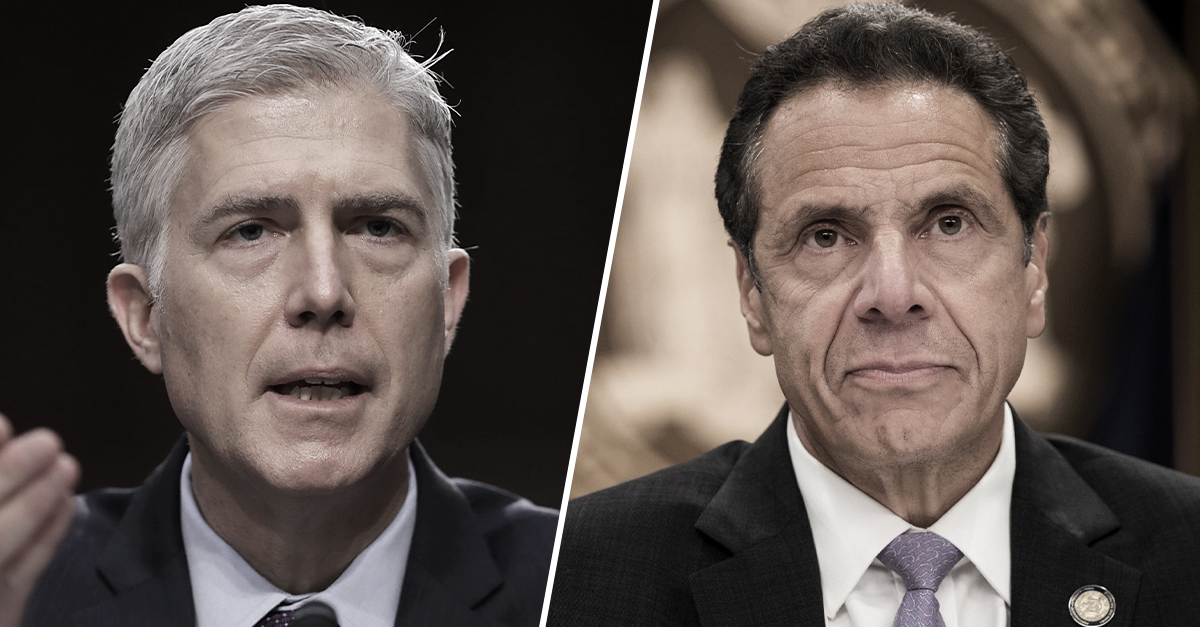


Get a free copy of Parental Rights & Education when you subscribe to our newsletter!

So far this year, the Supreme Court has ruled on four cases regarding discriminatorily applied restrictions on church gatherings.
On December 3, the United States Supreme Court once again blocked an overreaching state edict restricting church services in the name of “public health.” The frequency by which the Court is reviewing state restrictions is indicative of two things: Governors are unabashedly ignoring the Constitution, and originalist, conservative jurists on the High Court are up for the fight.
The Supreme Court granted injunctive relief to Harvest Rock Church, effectively tabling California’s restriction on church gatherings.
At hand was the question of discrimination, as is seen in one of the case’s presented questions:
“Whether the Free Exercise Clause of the First Amendment prohibits the government from discriminating against houses of worship by restricting the size of religious gatherings while exempting or giving other preferential treatment to comparable nonreligious gatherings occurring inside the same houses of worship or to other comparable nonreligious gatherings occurring externally.”
Harvest Rock Church was represented by Liberty Counsel, whose attorneys argued that the restrictions were disproportionately applied to houses of worship. The Court ruled in favor of Harvest Rock Church, but it is important to note the Court’s reasoning. The Court issued what is referred to as a “GVR order” (grant, vacate, remand) which grants review of the case, vacates the decision being appealed, and remands (returns) the case to the lower court for reevaluation, oftentimes in light of new precedent set by the Supreme Court. In this particular case, the GVR order was based on the precedent set in Roman Catholic Diocese of Brooklyn v. Cuomo, which was decided in late November.
This is not the first time a governor has implemented restrictions that discriminate against religious gatherings.
So far this year, the Supreme Court has ruled on four cases regarding discriminatorily applied restrictions on church gatherings. Of the four cases, the first two held 5-4 rulings upholding the restrictions, with Justices Gorsuch and Kavanaugh in the minority and the late Justice Ginsburg in the majority, while the second two cases held 5-4 rulings blocking the restrictions, with Justices Gorsuch, Kavanaugh, and Barrett in the majority. In summary, each of the most recent conservative appointees has voted in favor of freedom in these COVID cases.
In May 2020, the Supreme Court ruled 5-4 to allow California’s restrictions, which were different at the time, to stay in place.
In July 2020, Nevada implemented an edict capping church attendance at 50 people in their buildings – regardless of the building’s size. But the same edict capped businesses, including casinos, bars, etc. at 50 percent occupancy. In this scenario, a church that holds 1,000 people is only allowed to have 50, whereas a casino that holds 1,000 people is allowed to have 500. The Supreme Court ruled 5-4 to allow the Nevada edict to stand, with Chief Justice Roberts joining the Court’s left bloc, and Justice Neil Gorsuch penning a strongly worded dissent.
In November 2020, the Court’s demographics were different, with Justice Amy Coney Barrett replacing the late Justice Ruth Bader Ginsburg. This ideological contrast between Ginsburg and Barrett is evidenced by the Court ruling 5-4 to block New York Governor Andrew Cuomo’s disproportionately applied edict, with Barrett being the only changed vote from the previous two decisions.
And now in December 2020, the Court has ruled 5-4 to block California Governor Gavin Newsom’s edict, on the same grounds and with the same votes as their November decision.
It’s worth saying again, the new ideology on the Supreme Court is proving to be a guardian of the same Constitution that many governors are grossly violating.
The Church must be involved in public discourse and influence. That’s why we write — so our readers can be equipped to understand and pursue righteous change in the world. For more timely, informative, and faith-based content, subscribe to the Standing for Freedom Center newsletter.
